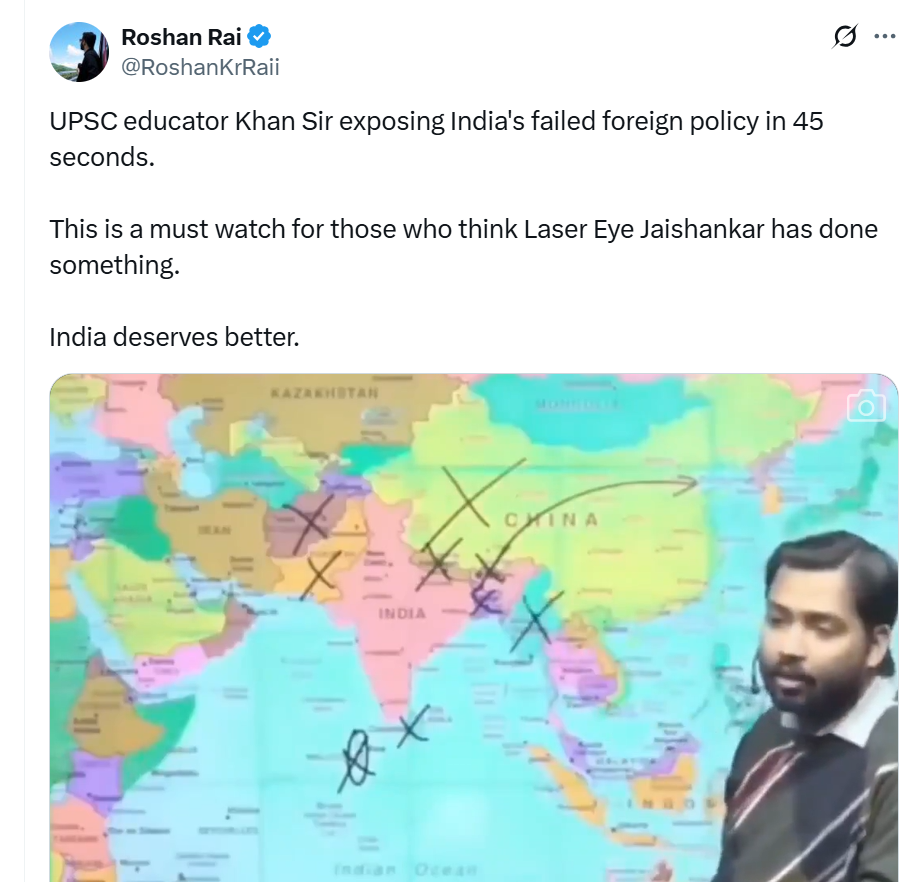
The video has ignited a broader online debate about the effectiveness of India’s current foreign policy leadership, particularly under External Affairs minister S. Jaishankar, who government supporters have lionized as a sharp, no-compromise diplomat. Nicknamed “Laser Eye Jaishankar” in fan circles, the minister is often portrayed as a master strategist who handles international relations with firmness and finesse. However, Khan Sir’s viral clip has challenged that narrative, with critics now questioning the substance behind the rhetoric. If India’s diplomacy has truly advanced under the current regime, many ask why the country still stands alone when its security and sovereignty are under threat.
 Social media platforms have since seen a surge in critical commentary, with netizens echoing the sentiment that “India deserves better.” Hashtags mocking performative diplomacy and glorified photo-ops have begun trending, as citizens demand accountability over admiration. Many believe india needs a foreign policy that translates global goodwill into actual strategic support, especially during critical moments. The growing discontent reflects a larger frustration with what is seen as an optics-driven approach to international relations — one that emphasizes speeches and symbolic victories over tangible geopolitical alliances.
Social media platforms have since seen a surge in critical commentary, with netizens echoing the sentiment that “India deserves better.” Hashtags mocking performative diplomacy and glorified photo-ops have begun trending, as citizens demand accountability over admiration. Many believe india needs a foreign policy that translates global goodwill into actual strategic support, especially during critical moments. The growing discontent reflects a larger frustration with what is seen as an optics-driven approach to international relations — one that emphasizes speeches and symbolic victories over tangible geopolitical alliances.




 click and follow Indiaherald WhatsApp channel
click and follow Indiaherald WhatsApp channel